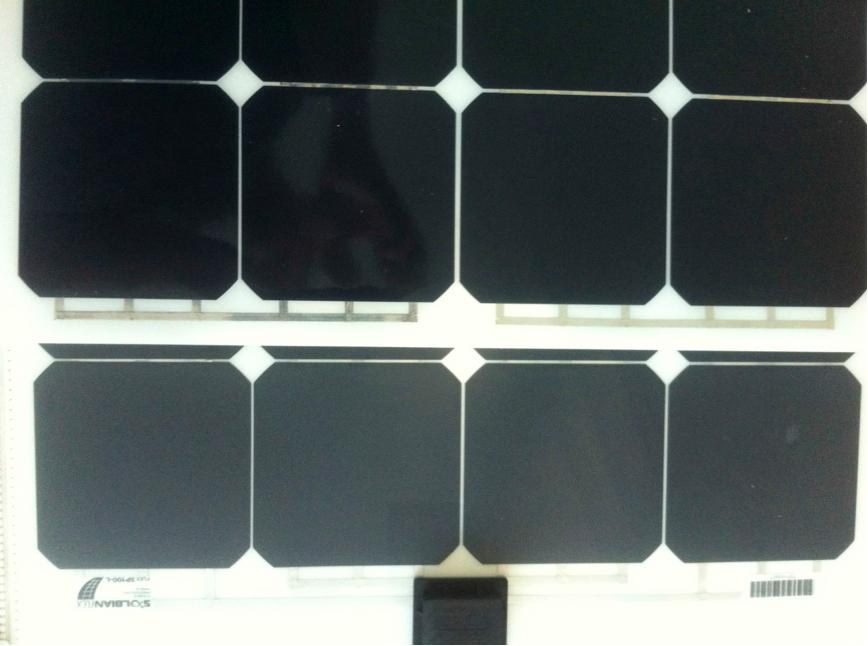There is not a lot of maintenance for a solar panel, but there are some things that are important. On a regular basis you should check your solar panel and ensure it is clean and has no dirt on the surface that may shade cells in the panel. Also check over each panel and look for anything that does not look ‘right’.
Shading of cells (or part of) can hamper its operation and, while the panels are fitted with by-pass diodes to minimize this problem, any restriction will create some resistance in the flow of electricity within the panel. This resistance will not only lower the performance of the panel, but increases the temperature of the shaded cells with the risk of hot-spots.
A periodic cleaning and polishing can avoid problems.
CLEANING
Your polymer panel should be treated much in the same way as the clear screens on your boat. Rinse the panel very well with fresh water before cleaning so that any buildup of salt or foreign matter is not allowed to scratch the surface. Wash with soapy water and rinse off well.
When clean and dry, it can be applied a coating of a plastic protectant such as the ones available from your marine chandlery. Rub this in well so as not to leave ‘smear marks’ on the panel surface.
 POLISHING
POLISHING
On a less regular basis you could lightly polish the surface of the solar panel. Regardless of your cleaning regime, the polymer panel spends its life laying flat and facing upwards. Fall out from cars, boat engine exhaust, city soot, salt build up, dust and dirt will land on your panel. To a large extent, this can be removed with a light plastic polish. You can see the effect of polishing in the image.
The lower section has been exposed to the strong temperature and UV of Australia for more than one year. The top section is the other side of the same panel after polishing. Polishing a solar panel requires the right product and the right technique. DO NOT use any polish, but use a specific polish designed for plastics such as the Novus range or Plexus or 3M.
Generally hand polishing is recommended. If you use a power polisher it MUST be on very low speed. It is easy to burn the surface of the panel with friction – this is also the case if polishing the clear screens on a boat. It is essential to take your time with this process. Rushing will only encourage you to push hard on the panel surface and you could damage the silicon cells – while you should only clean the surface. If you find that it takes a long
time, it would be better to repeat the process more regularly. It is much easier to clean a panel once every 6 months than once a year!

